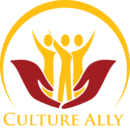Intercultural Effectiveness Credential
January 13, 2023 2023-01-14 14:31Intercultural Effectiveness Credential


Intercultural Effectiveness Credentials
Credential 1
Cultural Foundations
The Cultural Foundations Credential (CFC) is a multidimensional learning process through which participants gain the foundational skills, awareness, and practice required for effective intercultural interactions.

The principles of cultural humility, intersectionality, antiracism, and social justice inform each aspect of the program and provide structure for this holistic process designed to spark transformational change. The CFC includes 6 modules in which participants work towards these primary learning goals:
- Develop enhanced personal and interpersonal cultural awareness.
- Utilize mindfulness and somatic-based strategies for increased emotional capacity and distress tolerance necessary for working with racial issues.
- Identify and practice the core skills, behaviors, and self-care that lead to effective intercultural interactions.
Participants are grouped into cohorts, through which they gain
(a) Cross-cultural exposure,
(b) Opportunities for live intercultural opportunities to practice skills
(c) Peer-based support and feedback.
The CFC takes a gracious and empowering approach to learning and provides participants with a safe space to learn, fail, and grow as a community.
Prework: CQ Cultural Intelligence and Cultural Values Assessment. This assessment identifies participants’ strengths and developmental opportunities for functioning in multicultural settings. It provides an analysis of participants’ CQ Drive, CQ Knowledge, CQ Strategy, and CQ Action. It maps 10 Cultural Values and provides a Development & Action Plan for participant use throughout the series.
This introductory-level workshop provides an overview of core frameworks that are the foundation for effective intercultural interactions. Participants consider how the concepts of cultural humility, intersectionality, antiracism, and social justice provide an ethical basis for engaging social and culturally diverse communities. Additionally, participants explore mindfulness and somatic-based practices to assist with the self-care and emotional regulation essential for working with issues related to race and racism. Finally, the course introduces the concept of racial intelligence, explaining how personal awareness of race making and interpersonal skillsets form the basis of effective interactions with socially and culturally diverse communities.
Postwork: Self-Care Action Plan; CQ Development and Action Plan
Optional Prework: California Brief Multicultural Competence Scale
This introductory-level workshop explores READY™, a 5-step action plan for effectively and ethically managing issues related to race and racism. Utilizing this framework, participants learn how to:
(1) Recognize the racial context of any situation
(2) Engage in emotional regulation strategies that enable them to respond and not react
(3) Choose culturally responsive actions appropriate to the situation
(4) Determine if a cultural rupture has occurred and how to repair it
(5) Identify next steps for learning, advocacy, and activism.
Participants practice applying these steps and engaging in culturally responsive skills and behaviors via simulations of racialized interactions.
Required Postwork: Complete Module 2 Self-Care Log and Structured Journal Entry, Revise Development and Action Plan
Prework: ADDRESSING Identities Self-Assessment
In this intermediate-level workshop, participants utilize an intersectional and social justice approach to identifying and articulating their own social and cultural identities. Participants craft personal narratives of racial identity that incorporate their ancestral histories as well as their contemporary experiences. Participants then incorporate the READY action plan to guide their sharing of their narratives of identity with each other. This process provides participants with enhanced awareness of their social identities, practice communicating these identities to others, and opportunities to engage in culturally responsive skills during these interactions to manage the potential for cultural ruptures. Through group discussions, participants explore feelings and emotions that arise with the sharing of identities. They also consider the ethical implications of implementing identity into one’s clinical practice.
Required Postwork: Complete Module 3 Self-Care Log and Structured Journal Entry
This intermediate-level workshop provides context for the exploration of contemporary racism. It begins with a discussion of
(1) White privilege and fragility
(2) Black rage, resilience, and agency
(3) The distinctive characteristics of racism beyond the black/white binary experienced by Asian Americans, the Latinx community, and Indigenous groups.
Participants review strategies for self-care and the READY framework to ground their exploration of their experiences of racism. Utilizing portions of the UNRESTS Trauma and Discrimination Interview, participants then identify, share and respond to each other’s narratives of exposure to racism.
Required Postwork: Complete Module 4 Self-Care Log and Structured Journal Entry; Revise Development and Action Plan
Optional Prework: Color-Blind Racial Attitudes Scale
This intermediate-level workshop takes an in-depth look at the role of antiracism and allyship in effective intercultural interactions. It begins with a review of the concepts of antiracism and allyship and considers how these concepts fit into the READY 5-Step Culturally Responsive Action plan. This workshop provides extensive opportunities for participants to identify and practice antiracism and allyship behaviors and communication strategies via the Interpersonal Racial and Allyship Scale and behavioral simulations with corresponding debriefs. Moreover, participants identify and articulate distinct options for antiracism and allyship in light of their unique racial and cultural identities.
Required Postwork: Complete Module 5 Self-Care Log and Structured Journal Entry
The advanced-level workshop represents a culmination experience in which participants support each other in integrating and utilizing the skills that have been learned in previous modules and activities to address cultural ruptures. This workshop reviews the concepts of cultural humility, the READY™ 5 Step Culturally Responsive Action Plan, and strategies for emotional regulation. Participants then engage in experiential exercises and simulations in which they explore cultural ruptures, identify ways to address them, practice addressing them and receive feedback regarding their interactions.
Participants retake the CQ Cultural Intelligence Assessment to identify their progress in developing intercultural skills. They also review their Development Action Plan and make final revisions. Participants engage in an experiential exercise to synthesize their experience and collaboratively identify continued growth and accountability opportunities.
Cultural Foundations Deliverables
Credential
- 6 Live CEU Workshops
- 12 hours of Continuing Education Units
- Cultural Foundations Workbook for each participant
- Pre and Post-CQ Cultural Intelligence and Cultural Values Assessment
- ADDRESSING Identities Self-Assessment
Additional Support Options
- Moderated Group Discussion Board
- Antiracism Reading Group
- Antiracism Clinical Consultation Group
- POC Resiliency Group
- White Allyship Accountability Group



